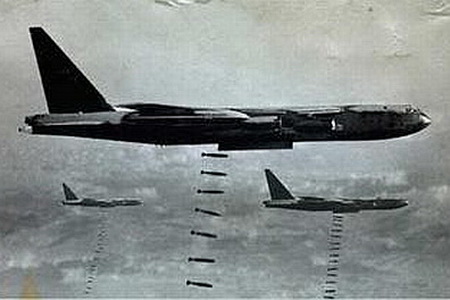
Think of the consequences for the world of American interference in countries such as Korea, Syria, Lebanon, Iran, Cuba, the Dominican Republic, Vietnam, Guatemala, Congo, Laos, Cambodia, Chile, Afghanistan, Angola, Nicaragua, El Salvador, Honduras, Iraq, Somalia, Libya, Yemen... To name only a few. What gives the USA the right to go to other countries and topple their governments and kill their people? And how do we make it stop?
At least at Columbia University in 1968 we tried. And in a small way it was a victory: Columbia stopped classified war research and abandoned the Morningside Park gym project. Students followed our lead in other universities in the USA and other countries. But any victories were shortlived. Students were killed at Kent State and Jackson State. At Columbia, ROTC and military and CIA recruiting are back, DOD-sponsored research has resumed, and Columbia has virtually destroyed Harlem as we knew it.
For the record, I'm not opposed the military; I'm an Army veteran; both my parents were in the Navy in World War II, and I've lived on Army bases overseas as a teenager. But that was when the US military was for defense. Now its mission is nothing less than world domination, which involves endless amounts of death, destruction, displacement, and suffering in countries that were never a military threat to us.
- United States involvement in regime change: Cold War Era and beyond, Wikipedia, accessed 11 August 2019.
- Department of Defense, Columbia Research, Columbia University website, accessed 11 August 2019.
- Columbia and the Military, Columbia University Senate Task Force on Military Engagement (2011), accessed 11 August 2019.
- E-mail Responses and Hearings, Columbia University Senate Task Force on Military Engagement (2011), accessed 11 August 2019.
- Central Intelligence Agency (CIA) Internships, Columbia University Career Education website, accessed 11 August 2019: "First-year students are eligible to apply for CIA Undergraduate Internship/Co-op Programs, as well as the Undergraduate Scholarship program."